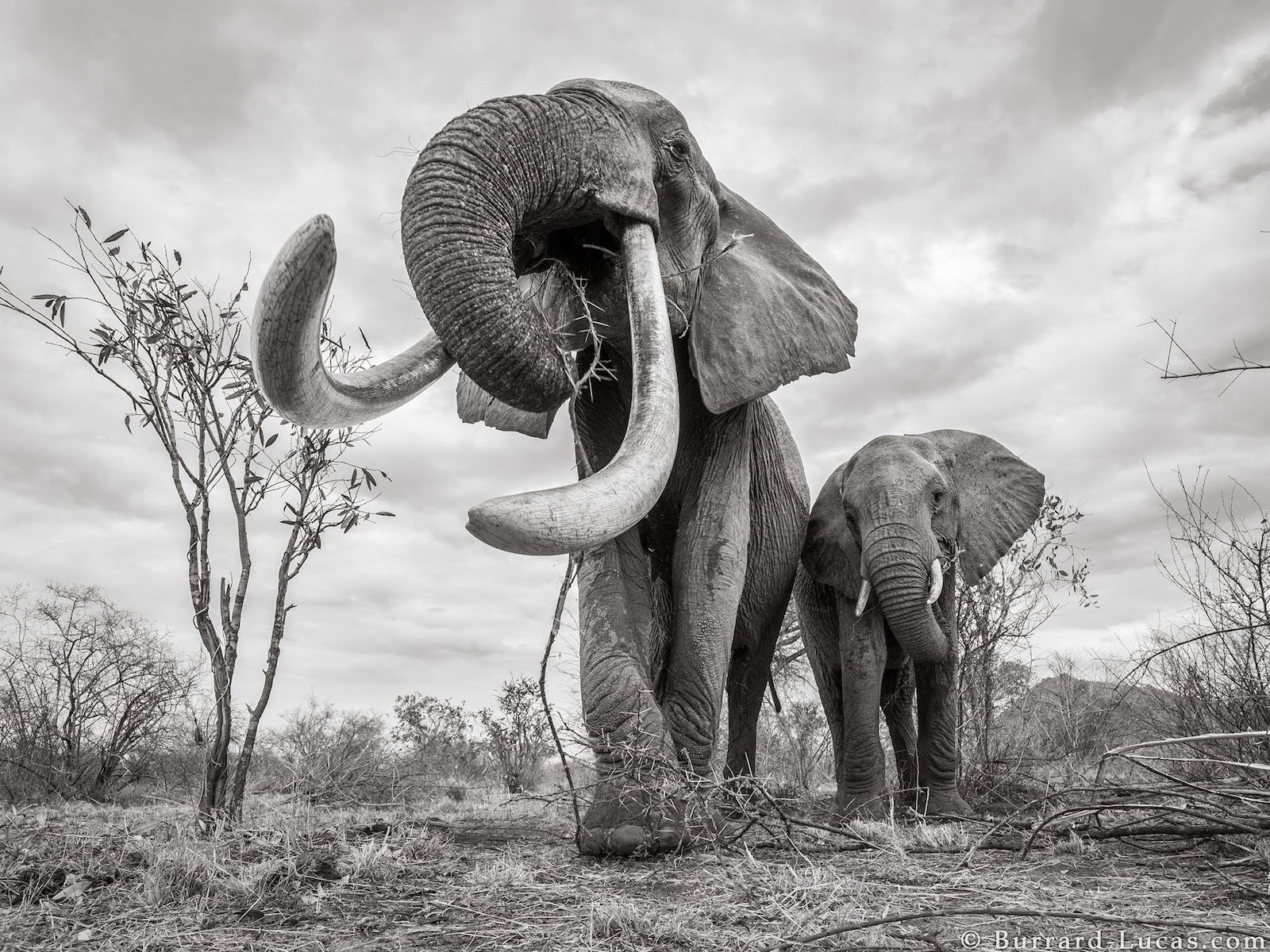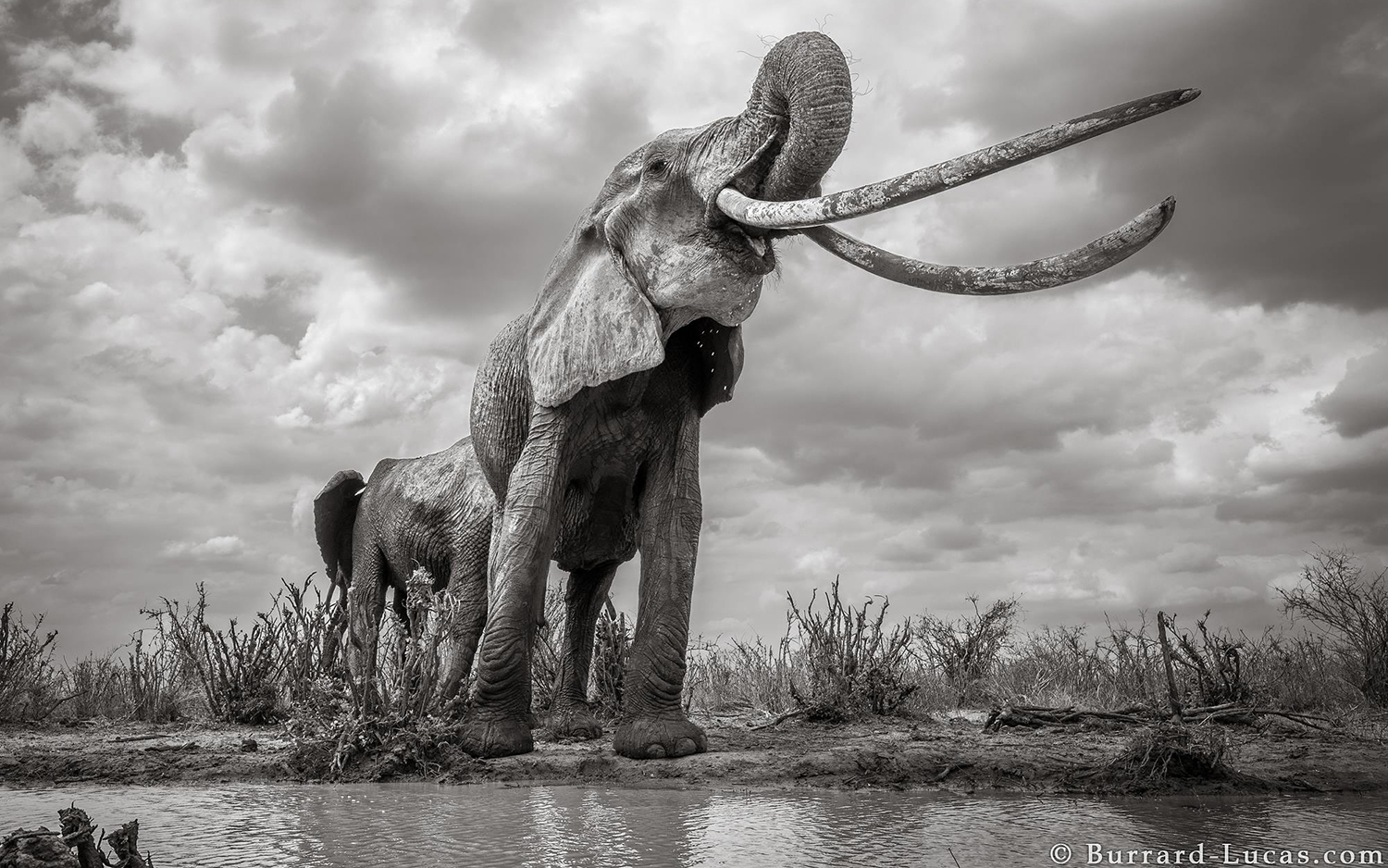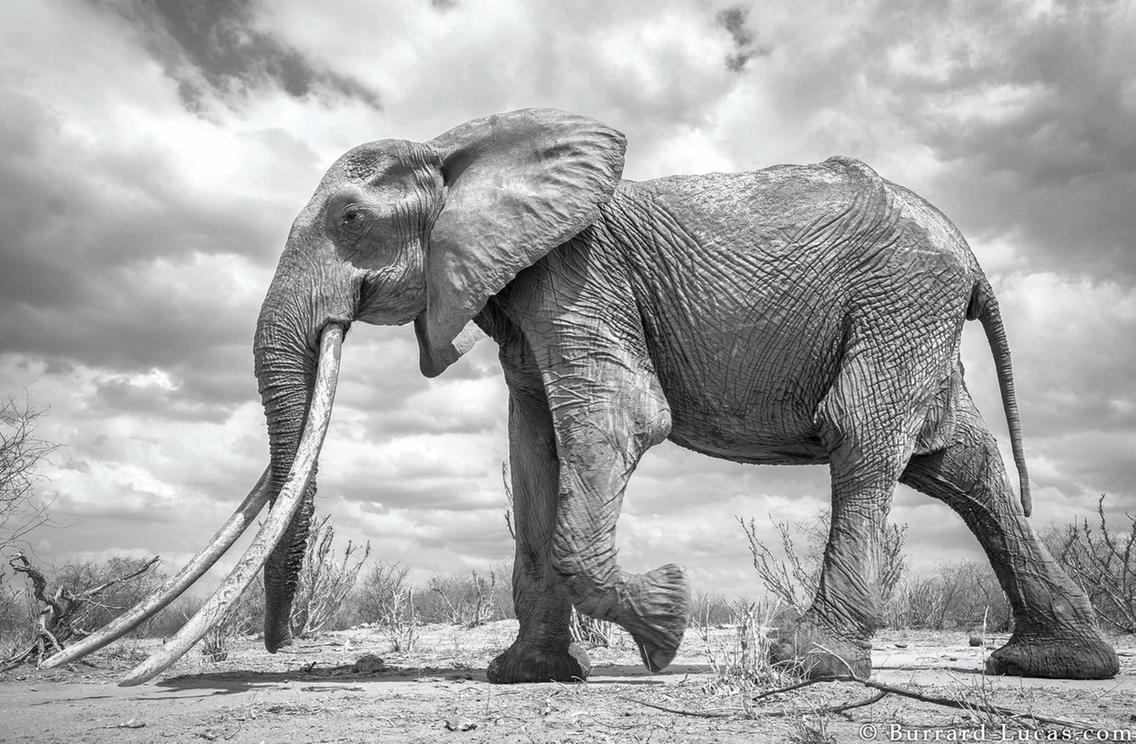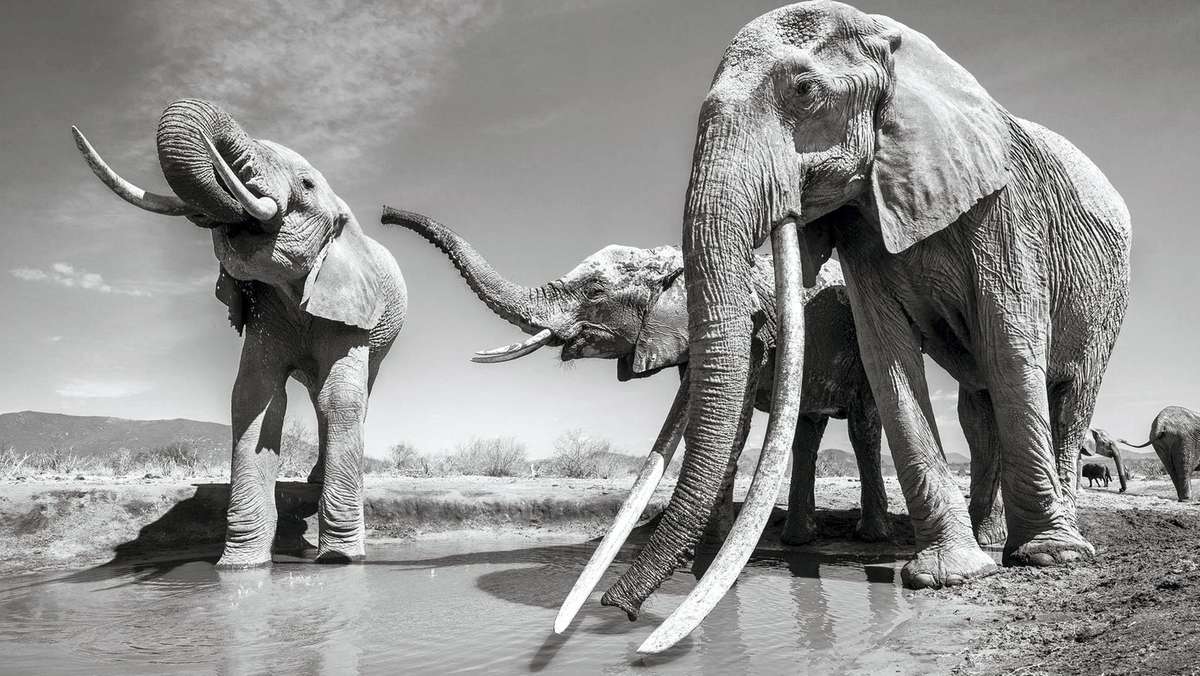Burrard-Lucas wrote in blog post about partnering up with the Kenyan Wildlife Service and Tsavo Trust, a conservancy organization focused on protecting elephants of Tsavo, in August 2017 to start up a photography book featuring tusker elephants. Tusker elephants are in high demand by poachers because of their long ivory tusks and whose world population is believed to be around 20.

With researchers from Tsavo Trust, they set out to find the elephant known by the code "F_MU1." After several days, while driving in an old Land Rover through a remote area about the "size of Switzerland," Burrard-Lucas finally came across the sexagenarian creature. He wrote in his blog that he was "speechless" when he came across the extraordinary elephant.
"F_MU1 was skinny and old but she strode forward with stately grace," he wrote. "She was like a relic from a bygone era."

Using a BeetleCam, he took ground-level shots of the elephant drinking from a waterhole. In one photograph, she stood over majestically with her trunk and tusks lifted in the air.
"That photo is one of my favorites," he told CBS News. "Basically, came out from the corner, [I] saw her drinking and she was lifting. But it was kinda of a race against time before she finished drinking and moved off. She just reminded me of a mammoth."
An ongoing drought made life difficult for elephants — both old and young. According to Burrard-Lucas, there was little to eat except branches of thorny acacia trees.

His last encounter with F_MU1 was at another waterhole after a "memorable" morning that featured elephants and a herd of buffalo who fought over water. She died weeks later in October 2017.
"I felt lucky to spend time with her in final moments," he told CBS News. "She died naturally — rather than other tuskers who died by poachers. It's definitely a victory that she lived a full and natural life."

These recently released photos and others of tusker elephants are part of Burrard-Lucas' book, "Land of Giants." He wants to show people "these elephants are still out there and can continue to live forever if they are kept safe."
"Hopefully, this can inspire people to keep them safe for generations to come," Burrard-Lucas said.
According to cbsnews



![[WORLDKINGS] Daily Highlights – February 20, 2020 – Half-mouth toothbrush is claimed to clean all your teeth within 20 seconds](https://indochinakings.org/wp-content/uploads/2020/02/0_vhktomwfhkiivw9divvx_1-218x150.jpg)




